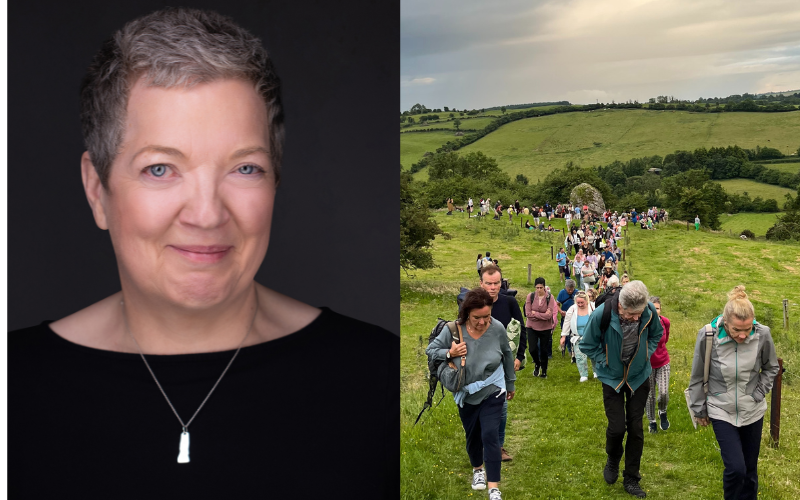There comes a time in every rocker's life when you have to chill a little bit, and I am no exception. After listening to KISS, Sabbath, the Pogues and Dropkick Murphys at ear-splitting volumes, one must retreat into the musical equivalent of chamomile tea from time to time.
No one, and I mean no one, soothes the eardrums quite like Phil Coulter.
Not rock and roll enough for this rock column, you say? Au contraire. He has produced Sinead, Cliff Richard, and the Bay City Rollers when not busy soothing the masses with his piano based instrumentals.
The Coulter phenomenon began 20 years ago, when his Tranquility series introduced a new era of meditative Irish music that ushered in the likes of Enya. He will be marking this anniversary with a live CD, Timeless Tranquility.
"To mark the anniversary, I thought we should make an album to reflect what this movement is all about," he says during an exclusive chat with the Irish Voice.
"You have some people who came on board during the time I was up for the Grammy for Highland Cathedral a few years ago, and then there are fans who are hardcore Tranquility fans from the beginning. Plus, there were some songs that people requested of us in concerts that have become staples for us, like 'Black is the Color' and 'You Raise Me Up.' So, the album hopefully has something on it for everyone."
Coulter is a master arranger, most adept in allowing sound and silence to dance freely in his renditions of these timeless tunes. There is a hypnotic beauty to "Black is the Color" that transforms this bedrock tune, while the romantic and patriotic elements of Sean O'Meara's "Grace" dance with one another throughout the tune.
One of my favorite melodies of all time is "Cal/Local Hero," from an Irish film in the 1980s scored by Mark Knopfler of Dire Straits. The quiet majesty of the original is captured perfectly in the hands of Coulter's orchestra.
Throughout the disc, Coulter employs whistles, Highland pipes, concertinas and the fiddle to give each melodic gem a decidedly Irish polish. Though one might think that there are not too many chances taken on an album of new agey ditties, Coulter tucks risk in the grooves of Timeless Tranquility.
Making a banjo and bagpipe two-step during the countrified "Rose of Allendale" is a bit jarring at times, but you have to admire the man for taking the road less traveled on this traditional tune nonetheless.
I must admit to a bit of eye rolling when I saw the song "You Raise Me Up." This was a melodramatic tune that has inexplicably captured the imagination of Irish artists like Westlife and Celtic Woman, resulting in countless overblown versions of the melody.
Having Coulter attack the song with an orchestra is wind-baggery waiting to happen, but he sidesteps the obvious road and throws his listener a curve with an emotional pedal steel guitar lick embedded in the melody. It brings the arrangement from the cartoonish boil it could have been to a slow simmer. The retooling is sheer genius.
"That was a color that lent itself to that tune," he explains. "You look to do songs your own way with new colors and shades. The steel guitar had that perfect sinewy kind of sound I was looking for. A rookie arranger fills every bar for the whole orchestra. They want value for the money. That is a mistake. Use imagination and economy. Silence can be as effective as a full orchestra in evoking emotion."
The songs of Timeless Tranquility are instantly hummable, due in part to what Coulter calls the "finger test." If he can't play the melody with one finger, then it probably isn't a good song.
"So many songs that are hits have studio enhancements on the arrangements or on the vocals that catch your interest, but they're really not good songs," he reasons. "I still look at myself as a songwriter and it's all about melody. Can you play the melody on one finger with the piano?"
To celebrate this anniversary and the release of Timeless Tranquility, he will also tour the States for the first time in seven years.
"You don't feel the time goes by," he says with a laugh when asked why he stayed away from our shores for so long. "I had a show, Coulter and Company, that I did for a while in Ireland that kept me at home. Apart from that, I have been busy as a writer, producer."
Some economists would counsel Coulter against bringing a full orchestra on tour, since the proceeds would wither in the face of the weak dollar against the euro. Coulter sees it differently.
"There is a constant flow of e-mails and there's not a week goes by that we don't get e-mails asking me when I am coming over," he says. "You feel an obligation because these fans stayed loyal to you all those years. It is not a profit making exercise. If along the way we can sell CDs, great.
"I have never been afraid of rolling the dice financially," he continues. "When we toured 20 years ago, no one knew who I was. After the first CDs got successful here, I made a decision to not be a big fish in a small pond.
"Big leagues mean the States. I reinvested the profits here to underwrite the first tour. The onus is not for the music lover to discover me. I had to go to them. You have to take the long view of your career, not just look at whether or not you are going to lose money from one tour to the next."
It's been a while since any of us have seen Coulter work his magic on the stage. His concerts are as warm as his melodies.
"You are entertaining. The stage is not a place for education or a place to indulge," he says. "By the end of the concert I hope people have been touched and moved and got to know me a bit better, rather than someone who played music at them for a few hours."
If you are looking to soothe the savage, rocking beast that exists within all of us, I encourage you to spend a few hours with Coulter.
For a full tour itinerary, visit www.philcoulter.com.




Comments